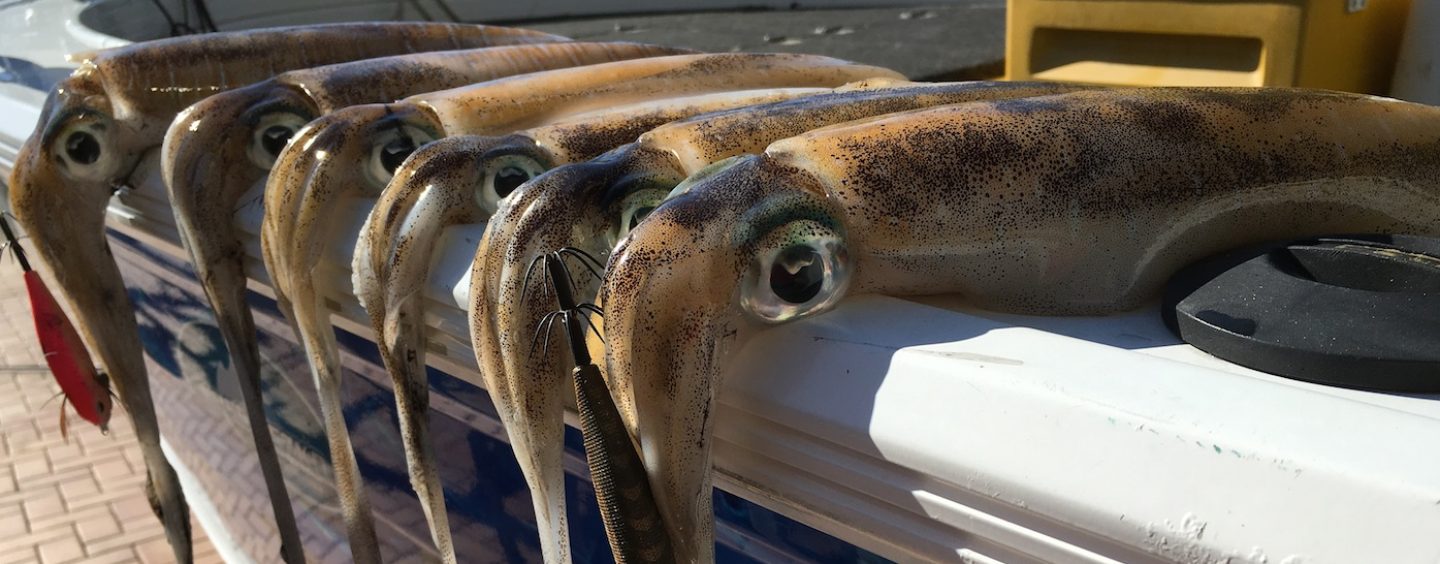Since I was a boy, it has always been a priority to wet a line at one stage of the day, and let the stress of the day fade away into the clear waters of the Broadwater. Back then, the stress levels at the grand old age of five were caused from choosing which colour Matchbox Car you wanted or working out how to beat my brothers at marbles. How things have changed! Still, the one creature that truly fascinated me was squid. To this day, they congregate throughout the canals and waterways of the Gold Coast.
The last thirty odd years have seen a major change in the structural makeup of my hometown and surrounding waterways. The old Southport Bar was sealed shut with the help of massive dredges, and the new Seaway was opened in 1986 to the applause of thousands. Canals were made and housing developments, marinas and jetties cornered off the old fishing haunts. Despite the major changes, marine life still persists to come back in numbers. With new habitats forming, anglers now have the opportunity to fish for a variety of species once only landed here in the seventies and early eighties when the population was an eighth of what it is now.
The hundreds of metres of rock walls lining the Southport Seaway have created what I believe a perfect environment for hundreds of marine species, including squid. Donning the goggles, snorkel and flippers and taking a close look under the water shows you just how many different varieties of marine species thrive throughout the area.
Straining the eyes and looking fur ther into the distance generally reveals the true lifestyle of the squid as they camouf lage themselves against the cunjevoi-laden rocks and sandy bot tom. Remarkably, they have this alien-style feature to change colour within a mat ter of milliseconds to suit the environment they are in, as well as defending themselves by shooting out thick black ink that instantly clouds the water. Within a blink of the eye, they are gone.
They are predominately in big numbers during the cooler months of the year. Caution should be taken when handling them as they have a parrot-shaped beak under their long suction cup laden tentacles. If you are bitten, it can create a wound serious enough to warrant a visit to your local doctor. Certain species can grow over ten meters long and as far back as the old seafaring days, stories have been told of how monster squid sunk the fleets of many trade and war ships.
Despite the fact that squid are extremely clever and intelligent, they are so surprisingly inquisitive to foreign matter, such as manufactured squid jigs, that it generally leads to their demise. I remember a few years ago, while diving the waters off Samurai in the China Straights of Papua New Guinea, a line of squid ranging from biggest to smallest with an adult specimen at the end swam past. Upon seeing us, they instantly schooled up. Then the largest squid came right up to our goggles and looked straight into our eyes for about ten seconds, and then returned back to the school before they got back into line and slowly swam away. I vividly remember the colours of its eye and the way it boldly came out to check us out. It blew me away.
Most of the squid on the restaurant menus today are imported and caught from the waters off Thailand and America, where hundreds of boats light up the waters with florescent lights and use long lines to catch them. Production lines are assembled on the vessels, where at times, tonnes are sorted, cleaned, packed and frozen every night. Due to the large amount of species found throughout the world, the price of squid remains steady on the international market and is a highly sought-after seafood for the restaurant and fishing industries.
My old days of catching buckets of squid and taking them back home to mess up the concrete paths and kitchen have passed. It is so surprising how a simple experience, such as the one I had in PNG, could have such an impact and change my overall outlook on this beautiful and intelligent species. However, if one or two were to swim past the rocks or boat I was fishing off, I have no doubt it would not take long for a jig to be tied on.
By Paul Burt






























